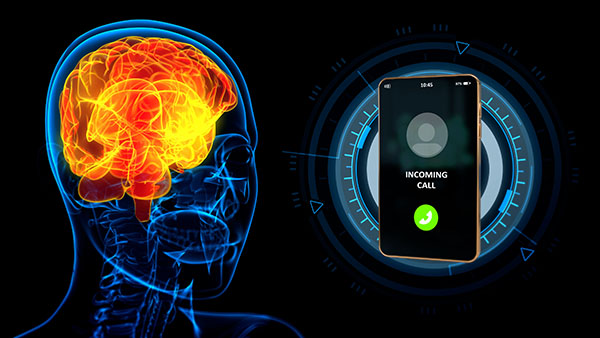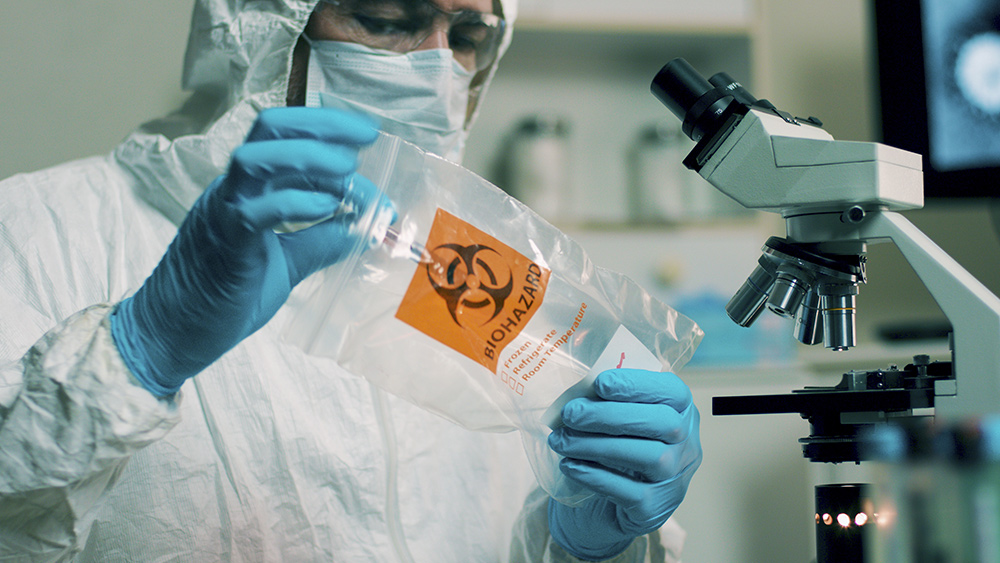UNESCO warns against BRAIN CHIPS being used as “personality-altering weapons”
07/24/2023 / By Ramon Tomey

An agency under the United Nations has warned against brain implants such as Elon Musk’s Neuralink over their potential to be used as “personality-altering weapons.”
The UN Educational, Scientific and Cultural Organization (UNESCO) issued the warning through its International Bioethics Committee (IBC). According to the IBC, neurotechnology could lead to “new possibilities of monitoring and manipulating the human mind through neuro-imaging [and] personality-altering [programs].”
Because of this, the UN agency is now strategizing on a worldwide “ethical framework” to protect humanity from the potential abuses of brain chip technology. UNESCO fears that these abuses will be accelerated by advances in artificial intelligence (AI).
“We are on a path to a world in which algorithms will enable us to decode people’s mental processes,” remarked Gabriela Ramos, UNESCO assistant director-general for social and human sciences. She continued that breakthroughs in neurotechnology that could “directly manipulate [humans’] brain mechanisms, underlying their intentions, emotions and decisions” have “far-reaching and potentially harmful” implications.
Economist Mariagrazia Squicciarini, who heads the executive office of UNESCO’s social and human sciences sector, shared the same sentiment. She noted that the capacity of machine learning algorithms to rapidly pull patterns out of complex data, such as fMRI brain scans, will accelerate brain chips’ access to the human mind.
“It’s like putting neurotech on steroids,” said Squicciarini, who specializes in AI issues.
UNESCO’s IBC convened a conference on July 13 that saw 1,000 participants attend. The results of the conference were released in a 91-page report on July 18.
“The spectacular development of neurotechnology – as well as new biotechnologies, nanotechnologies and [information and communications technologies] – makes machines more and more humanoid,” the report stated. “People are becoming more connected to machines and AI.”
“It is necessary to anticipate the effects of implementing neurotechnology. There is a direct connection between freedom of thought, the rule of law and democracy.”
Musk describes implants as akin to “replacing a piece of the skull with a smart watch”
According to the IBC report, neurotechnology poses a challenge to “some basic aspects of human dignity, such as privacy of mental life or individual agency.” To address these, the committee called for wider transparency of neurotechnology research from industry and academia. It also called for the drafting of “neuro-rights” for inclusion in international human rights law.
UNESCO’s warning about neurotechnology followed the U.S. Food and Drug Administration granting Musk’s Neuralink federal approval to conduct trials on humans. Neuralink implants will connect the brain to the cloud via threadlike electrodes sewn into certain areas of the brain. These electrodes will communicate with a chip to read signals produced by the brain’s neurons. (Related: FDA approves Elon Musk’s Neuralink brain implants that seek to CONTROL the human mind.)
“Because neuron signals become directly translated into motor controls, Neuralink could allow humans to control external technologies … [and regain] lost bodily functions or muscle movement with their mind,” the Daily Mail noted. Musk himself described the implants as akin to “replacing a piece of the skull with a smart watch.”
While the tech mogul has focused on Neuralink’s potential benefits, U.S. federal regulators have zoomed in on its capacity for harm. The company has been the subject of an investigation by the inspector general of the U.S. Department of Agriculture for potential violations of the Animal Welfare Act. The probe, launched at the request of a federal prosecutor, centered on “extreme suffering” experienced by monkeys that the brain implants were tested on.
The IBC report drew specific attention to the risks posed by “dual use” AI brain chip technologies that can be easily reprogrammed for nefarious purposes. Such technologies, it said, possess “the potential to deepen social inequities, to harm individuals’ privacy and to provide methods of manipulating individuals.”
“Groundbreaking developments in neurotechnology offer unprecedented potential,” Ramos ultimately remarked. “But we should remain aware of its negative impact if it is employed for malicious purposes. We must act now to ensure it is not misused and does not threaten our societies and democracies.”
Visit FutureTech.news for more stories about neurotechnology in the form of brain implants.
Watch this video that explains why neurosurveillance and personality-altering weapons – in the form of brain implants – usher in the next step of transhumanism.
This video is from the RogueRunnerRanch channel on Brighteon.com.
More related stories:
Neuralink brain implants are ready for injection into humans, says Elon Musk.
Elon Musk’s Neuralink wants to start implanting their own brain chips in people.
Ethical questions raised after Elon Musk’s Neuralink company implants chip in monkey’s brain.
Sources include:
Submit a correction >>
Tagged Under:
AI dangers, artificial intelligence, biotechnology, brain chips, brain implants, dangerous, Elon Musk, enslaved, future science, future tech, glitch, mind control, Neuralink, neurotech, neurotechnology, personality-altering weapons, research, risk, transhumanism, UNESCO
This article may contain statements that reflect the opinion of the author
RECENT NEWS & ARTICLES
ScienceDeception.com is a fact-based public education website published by Science Deception Features, LLC.
All content copyright © 2018 by Science Deception Features, LLC.
Contact Us with Tips or Corrections
All trademarks, registered trademarks and servicemarks mentioned on this site are the property of their respective owners.



















